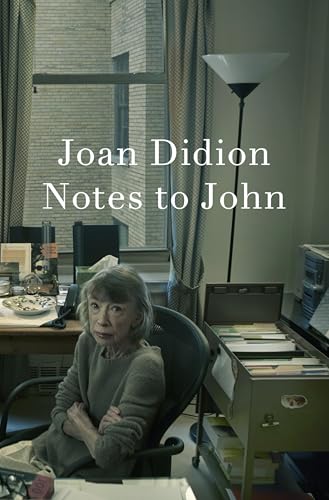Review of NOTES TO JOHN
by Johny McFliggen, PhD Literature & Business, Oxford
Ah, the enigmatic Joan Didion, the empress of the unsentimental, whose prose cuts through the fog of pretense like a scalpel on a surgical table. "NOTES TO JOHN," if indeed it exists as the literary specter you describe, would be a tantalizing addition to her oeuvre. It would presumably be a first-person account of Didion's psychiatric sessions, written to her late husband, John Gregory Dunne. One can only imagine the raw introspection and emotional candor that might fill these pages.
Didion's work has always been a delicate dance between the personal and the universal—a quality that would presumably shine in this intimate exchange between her and John. Her previous explorations of grief, particularly in "The Year of Magical Thinking," which dissected the aftermath of John's death with clinical precision, suggest that "NOTES TO JOHN" would delve even deeper into the recesses of her psyche. Didion never shied away from the uncomfortable truths of human existence, and this posthumous reflection could offer a profound glimpse into her internal world during one of life's most vulnerable periods.
Comparing this hypothetical work to "The Year of Magical Thinking" or "Blue Nights," one might expect a continuation of her exploration into the nature of loss and memory. However, unlike these memoirs, which were public acts of mourning, "NOTES TO JOHN" would be intensely private. It would be akin to stumbling upon a hidden diary—a rare opportunity to witness Didion's internal dialogue as she grapples with her demons.
The idea of Didion in a psychiatric setting is intriguing, considering her reputation as a stoic observer of chaos. Her ability to distill the essence of societal disintegration into crystalline prose suggests that her reflections on mental health would be both insightful and unsettling. If we were to draw parallels to other literary works, it might echo the confessional style of Sylvia Plath's "The Bell Jar" or William Styron's "Darkness Visible," each offering a window into the tumultuous landscape of the mind.
Given Didion's mastery of language and her acute observational skills, one can only surmise that "NOTES TO JOHN" would be an eloquent meditation on love, loss, and the human condition. It would likely challenge readers to confront their own vulnerabilities while providing solace through shared experience. In a world hungry for authenticity amidst curated facades, Didion's unflinching honesty remains as relevant as ever.
While we await confirmation of this book's existence or hope for its eventual discovery among Didion's papers, we can indulge in the possibility of its brilliance. Should "NOTES TO JOHN" ever grace our bookshelves, it will undoubtedly affirm Didion's legacy as a chronicler of the human spirit—one who dared to gaze unflinchingly into the abyss and report back with wisdom and grace.
Purchase Link: NOTES TO JOHN on Amazon



